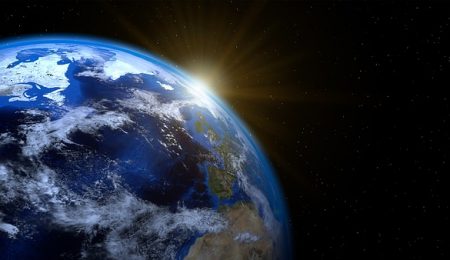Q: I work in organic agriculture. I’m surrounded by people who are afraid of technology, and what things are doing to nature. It can be difficult to stay in that field because I don’t buy all that fear-mongering, but at the same time there is some value to it.
John: We are an oppression to nature, but we’re able to be an invitation to nature.
Q: How do we do that?
John: By awakening and living the awakening.
Q: And that’s not related to how to use technology? My field is divided into two camps: the nature lovers and the technology lovers. There’s not really a lot in between. You either do traditional things in a natural way, or you use high technology.
John: And nature doesn’t really meet with either one. Nature isn’t awakening to either one.
Q: Right. It’s not about nature, it’s about awakening.
John: And, as we awaken, there’s a possibility for nature that wasn’t there before. When we live our awakening, nature can come into that possibility.
Q: So how does that affect how we relate with nature?
John: The effect of it would be a completely different level than how we do relate to nature. We relate to nature through our senses. Nature’s response to us when we live our awakening isn’t going to be on the level of our senses.
Q: So if we use biotechnology and chemicals everywhere, we can still go through that awakening?
John: Yes.
Q: And that’s not going to keep us from awakening.
John: That’s right.
Q: So where’s the value in organic agriculture?
John: There’s a balance to it on the surface. It doesn’t affect the deeper levels, just as the kind of self you have isn’t an inhibitor to your awakening.
Q: Because organic people tend to be more conscious of natural processes than people who use chemicals?
John: Yes.
Q: Is that a value?
John: Yes, there’s a value in both. Technology moves forward at the expense of nature, at the expense of a lot, and it provokes us all forward.
Q: But there’s so much discussion around that doesn’t really have any value. How do we move beyond that discussion?
John: It provokes a moving forward, and at the same time we need to be in a fundamental wholesomeness. We need to be able to move in both. People favour themselves, so then people will favour issues. That immediately means that there must be a split. There have to be sides, and you’ll have champions on both sides.
Q: So what’s my role in that? I find these discussions are not fruitful.
John: There’s very little that’s real anyway. If you had to separate from everything that’s not real, you couldn’t even be in this world. The planet is overrun by us and everything that we’re about.
Q: So you can’t just drop out of it.
John: It’s hardly possible.
Q: So we have to keep playing games?
John: Not keep playing the game but being able to move within the game. What you’re all about is not the game.
Q: Ok.
John: The fact that we’re pushing the planet and ourselves towards ruin in itself provokes an awakening. On the surface, it pushes the collective mind to save everything. On a deeper level, that pushes us forward to the more that we really are. Saving the planet and saving ourselves isn’t going to help us, but the pressure that’s in that can help us.
Q: So globally you would apply that to the warring religious factions?
John: Yes.
Q: So that brings about the opportunity for awakening and growth on a global scale. Is there some instrument that helps that?
John: What helps us past that is honesty that doesn’t originate from our selves, being more honest than what the self is.
Q: As an individual, the more I am honest, the more I am helping resolve those world wars?
John: Yes. When you have that kind of honesty, you won’t be all about your self.
Q: To what extent does each of us create our experience of what might be happening globally?
John: The kind of relationship everyone has with their selves creates that.
Q: So if one can just be peaceful whilst surrounded by all of the news…
John: Being at peace in the heart in the midst of the experience within the self, when bombarded with what you think or feel about anything inside or outside of you.






